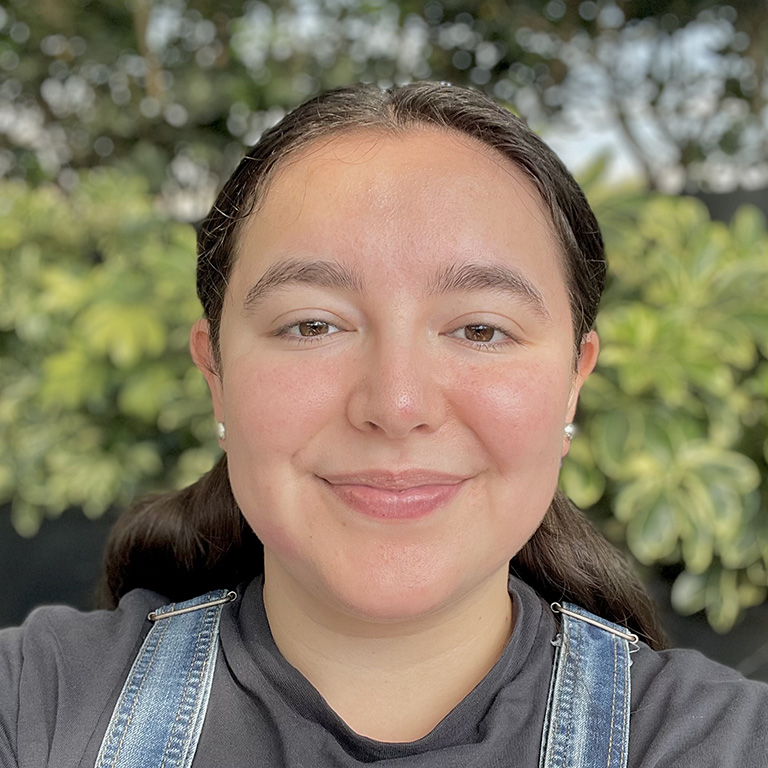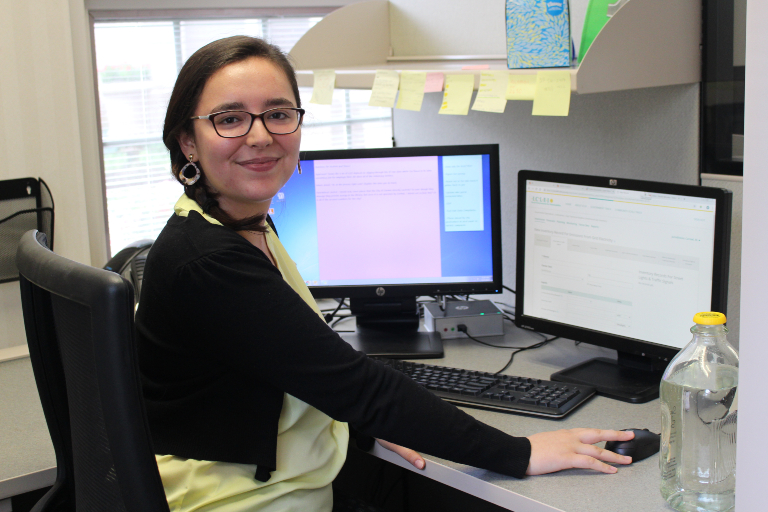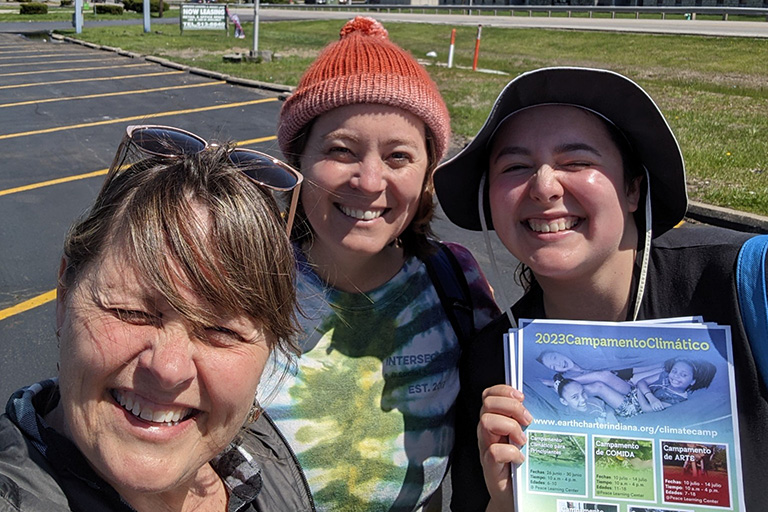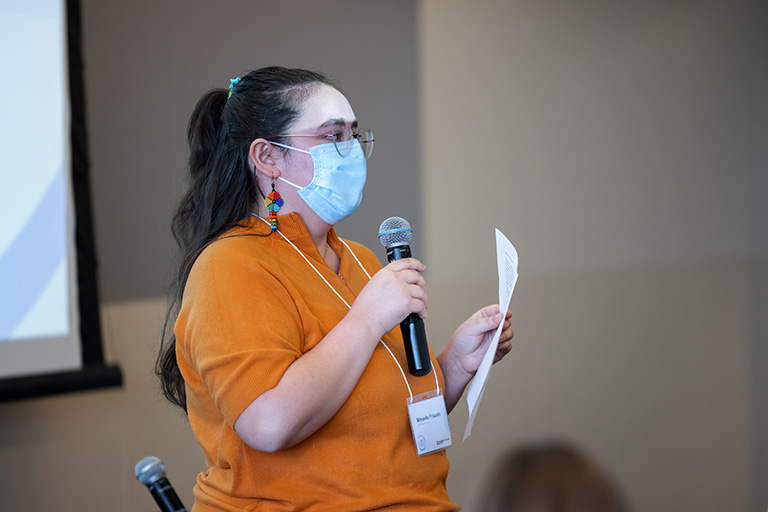This Q&A series highlights McKinney Climate Fellows alumni and their professional journeys within Indiana and beyond. The McKinney Climate Fellows program, administered by Indiana University’s Environmental Resilience Institute and Integrated Program in the Environment, connects IU undergraduate and graduate students interested in climate, sustainability, and community resilience with career experiences.
Born in Mexico City and raised in Toronto and Carmel, Ind., Miranda Frausto grew up in a Latino family that cared about the environment. This special connection led Frausto to become a youth climate leader in high school and to get involved with sustainability organizations as a student at IUPUI.
In 2019 and 2020, Frausto seized the opportunity to put her advocacy work into action, becoming a McKinney Climate Fellow and working with the City of Carmel to develop the city’s first greenhouse gas inventory and climate action plan.
Having graduated with a degree in sustainability management and policy, Frausto was recently hired to be the first Hispanic and Latino Outreach Coordinator for Earth Charter Indiana and is working to engage the Latino/x/e community across the state with the organization’s climate-conscious mission. The following interview has been lightly edited for length and clarity.
What project(s) did you work on during your McKinney Climate Fellow placement?
The first year I was focused on doing Carmel’s first greenhouse gas inventories. Then the next summer I focused more on the climate action planning process. We took the emissions information and made a plan for next steps, but I mainly focused on community engagement during the climate action planning portion of my fellowship.
The community engagement was during COVID, so we were all adjusting. I hosted virtual town halls back in the day when people still enjoyed getting on Zoom together. I also held focus groups with people across and beyond the city who had actual control and a stake in reducing our emissions. Obviously, we can make a climate action plan, but if we don't have stakeholder support for certain action items then we can’t get very far in our plan.
What did you learn during your experience and how has it informed your career path so far?
I think McKinney Climate Fellows was a really cool experience in technical sustainability work. I had never done greenhouse gas inventories before, especially at that large of a scale, so I got to turn on that part of my brain, which eventually informed my career path by teaching me how to balance that technical work with soft skill work.
How do you feel that McKinney Climate Fellows and your role in it helped prepare you for your current role?
I think the biggest thing was confidence. Before I did the greenhouse gas inventories, I struggled with imposter syndrome. I thought, “Am I going to be able to do this as successfully as my colleagues in the cohort?” But then through figuring it out on my own and relying on my support system, I realized that I can do it. I think it really helped me to know that I shouldn't be intimidated by a career in sustainability, and I have everything I need to succeed in me.
What called you to pursue a career in climate and sustainability?
I remember caring about the environment and community from a young age. I got it from my grandpa. He instilled a lot of those values. And then when I was older, I realized that those values from my Mexican culture align with what sustainability is. I just didn't know the word for it until I was in college.
It was also motivating to work on the youth-led climate resolution for the City of Carmel in high school; then as a McKinney Climate Fellow, get to see some of my work in my younger years come full circle.






